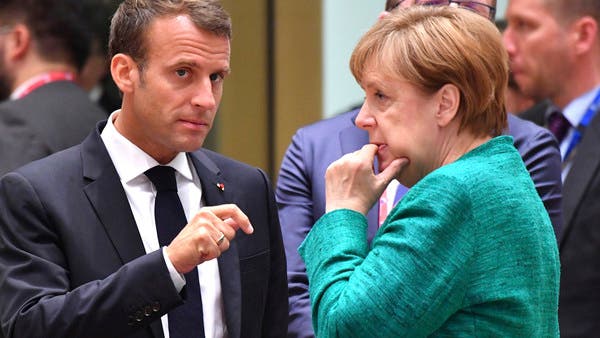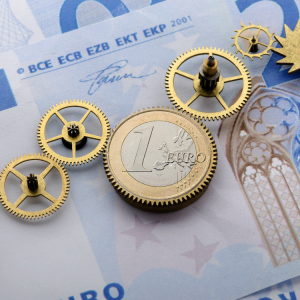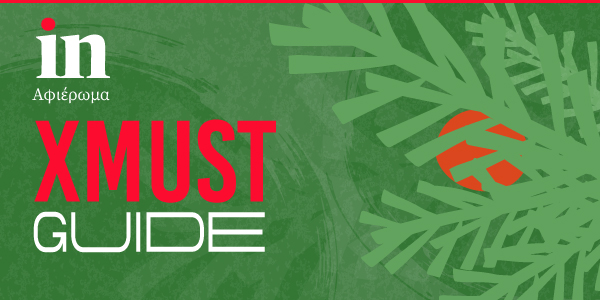
Coronabond apple of discord at crucial Eurogroup, investors anxious
'I hope we will get progress on a coronabond tonight, but more realistically is probably some kind of rescue fund in the making. It should be the minimum of what we can expect,” said Piet Haines Christiansen, a top financial analyst.
Markets and all EU member-states, especially those in Southern Europe which like Greece seek some form of mutualisation of debt have been focusing like a laser beam on today’s Eurogroup meeting and analysts expect joint action to help prop up the economies of member states – possibly including even so-called coronabonds.
A proposal by nine countries including Greece for the issuance of an emergency “coronabond” to grapple with the public health and economic repercussions of the Covid-19 crisis appeared unlikely but they would like it to remain on the table.
French President Emmanel Macron has tabled a plan for an emergency fund that would be endowed with 350bn euros or two percent of the Union’s GDP from which member-states can borrow for a period of up to 10 years.
That is considered highly unlikely to be accepted by fiscal discipline hardliners such as Germany and the Netherlands which consider the plan too close to the mutualisation of debt involved in the coronabond proposal.
The Hague in particular has accused Southern European member-states of imprudent and untrammeled past spending and has essentially argued that they do not deserve a bailout even at a time that an unprecedented crisis will deal a severe blow to the European economy and could imperil the future of the entire European project.
Investors: Limited hope for coronabond
“Investors have recently been detecting growing public support for the concept of coronabonds in European Commission and ECB circles,” said DZ Bank analyst Daniel Lenz, adding that German ECB Executive Board member Isabel Schnabel was among those who appeared to voice support.
Germany has traditionally opposed the idea of joint debt issuance, being unwilling to effectively back the debt of lower-rated and poorer Southern European countries. Key figures in the German government are yet to be convinced, media reports suggest.
But the idea has gained traction in light of the recent spread of the new coronavirus, which has resulted in more than 28,000 deaths in Italy and Spain alone, the two worst-hit countries.
German bond yield rise ahead of Eurogroup
German government bond yields headed towards a two-week high on Tuesday with euro zone finance ministers due to meet later in the day to discuss a joint response to help member countries deal with the economic impact of the novel coronavirus.
The prospect for fresh issuance with Germany planning to launch its first 15-year benchmark government bond in May through a syndicate of banks also put upward pressure on yields.
Demand for safe-haven Bunds has softened in recent days as the number of new cases and the increase in the death toll from COVID-19 has slowed in several countries including Italy and Spain.
“In this market environment, Bund yields moved upwards, above all at the long end of the maturity curve,” Lenz said.
German government bond yields rose 7-10 basis points across the curve, with the long-dated 30-year bond up 10 bps at 0.06%, its highest since March 27.
Benchmark 10-year yields rose 10 bps to minus 0.32%, the highest level since March 26, according to Refinitiv data.
Italian yields were flat to a touch lower on the day, with benchmark 10-year borrowing costs 2 bps lower at 1.52%, while the closely watched Italy/Germany 10-year bond yield spread tightened 8 bps.
Risk assets rallied elsewhere, with European stocks rising and corporate bond markets also strengthening on the day. Cyprus, one of the lower-rated countries in the bloc, is marketing a seven-year and 30-year bond issuance, according to IFR, Refinitiv’s capital markets publication.
Analysts expect rescue fund in lieu of coronabond
“I hope we will get progress on a coronabond tonight, but more realistically is probably some kind of rescue fund in the making. It should be the minimum of what we can expect,” said Piet Haines Christiansen, chief strategist, ECB and Fixed Income at Danske Bank.
However, ING analysts warned that the Eurogroup “has the potential to spoil the party early” if it does not agree a package.
Expectations are for the European Union, the European Investment Bank and the European Stability Mechanism to all be part of the joint borrowing programme; and any debt issued by these institutions can be supported by the ECB’s bond-buying scheme.
Source: Reuters
.
Ακολουθήστε το in.gr στο Google News και μάθετε πρώτοι όλες τις ειδήσεις






































 Αριθμός Πιστοποίησης Μ.Η.Τ.232442
Αριθμός Πιστοποίησης Μ.Η.Τ.232442